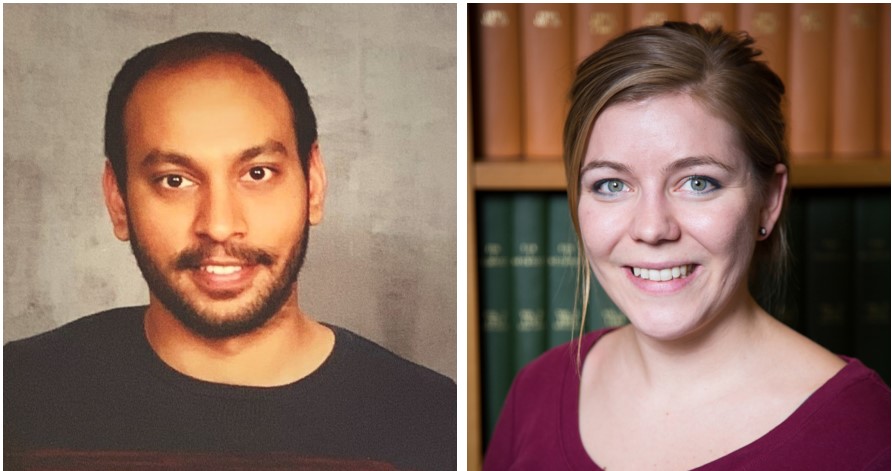Beyond the Paper
Co-first authors Drs. Krishnakanth Kondabolu and Natalie Doig discuss how they overcame barriers from COVID lockdowns to collaborate, bridging together multiple techniques to map out and describe a precise connection between the subthalamic nucleus and the striatum.
While discussing their co-first author paper about the discrete influences of food restriction and reinforcement schedules on reward-related behaviors, Dr. Maxime Chevée and Ms. Courtney Kim highlight how their mentor-mentee relationship in Dr. Erin Calipari’s lab positively impacted their futures.
Karl Herrup and Christophe Bernard philosophically discuss fallacy traps in neuroscience, in an episode of the webinar series SfN Journals: In Conversation. Here is a teaser for the episode available to watch on-demand.
Dr. Mahima Sharma, currently advancing her research career at the Buck Institute, emphasizes how interdisciplinary collaboration is critical for extending benchwork science translatability as we discuss her recent first author eNeuro publication.
Dr. Hugo Calligaro, currently in the lab of Dr. Satchidananda Panda at Salk Institute for Biological Studies, tells us about his interest in circadian rhythms and discusses the unexpected findings from his recent first author publication.
Dr. Matthew Colonnese gives behind-the-scenes details about his eNeuro paper and cogitates on the implications of his surprising findings, in an episode of the webinar series SfN Journals: In Conversation. Here we provide a teaser for the episode available to watch on-demand.
Dr. Paul Baudin, currently completing his medical degree at the Sorbonne Paris Nord university, tells us how his Ph.D. broadened his conceptualization of neurological diseases and treatments, and emphasizes the importance of publishing negative data.
Dr. Kathleen Bryant tells the story of her journey in the alcohol research field and discusses the surprising findings in her recent first author publication from Dr. Jacqueline Barker’s lab at Drexel University, where she obtained her doctoral degree.
Learn how and why eNeuro became a venue to publish and share Open-Source Tools and Methods papers.
Reginald Cannady and Sudarat Nimitvilai-Roberts tell the story about their co-first author paper about time-dependent changes in cellular excitability of neurons in the prefrontal cortex following chronic voluntary ethanol drinking in mice.
FOLLOW US
TAGS
CATEGORIES












 RSS Feed
RSS Feed




